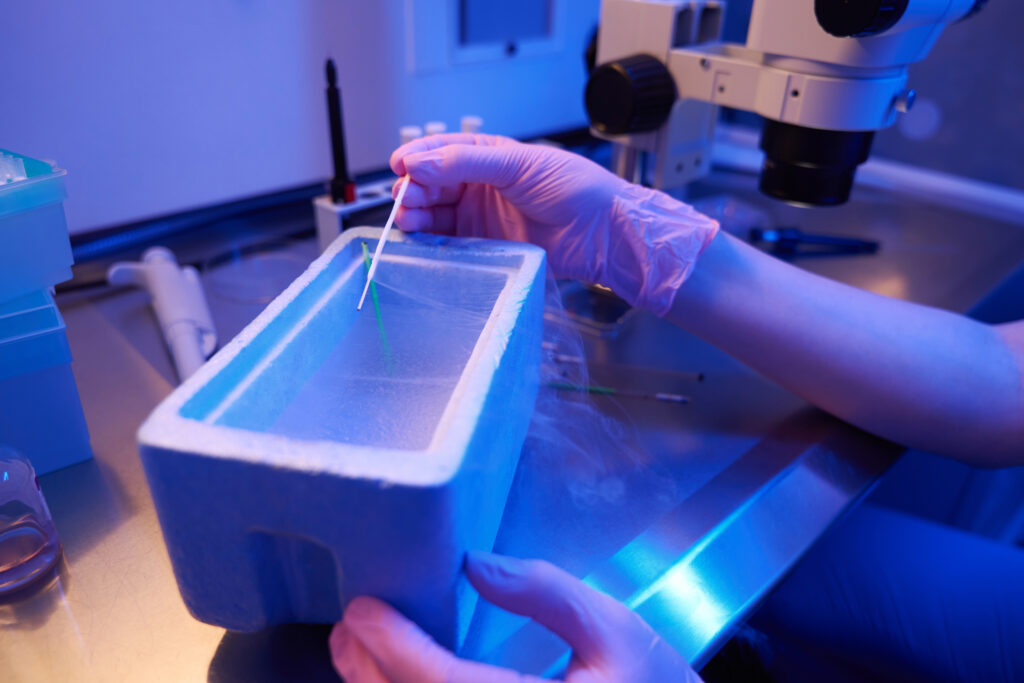The Overturning of Roe v. Wade: Implications for Surrogacy and ART
On June 24, 2022, the United States Supreme Court issued its landmark decision in Dobbs v. Jackson Women’s Health Organization, overturning Roe v. Wade and eliminating the constitutional right to abortion. This historic ruling has had far-reaching consequences across various areas of reproductive rights, including surrogacy and assisted reproductive technology (ART). While much of the discourse has focused on abortion access, the impact on individuals and families pursuing fertility treatments and surrogacy arrangements is profound. Fertility lawyers, intended parents, surrogates, and fertility clinics must now navigate an evolving legal landscape that varies significantly by state.

Background: Understanding the Impact of Dobbs
Before Dobbs, Roe v. Wade (1973) and Planned Parenthood v. Casey (1992) established a constitutional right to abortion, preventing states from banning the procedure outright. The legal framework provided by these precedents also indirectly influenced other reproductive rights, including aspects of ART and surrogacy, by ensuring bodily autonomy and reproductive decision-making rights. The Dobbs decision, however, returned the power to regulate abortion to individual states, leading to a patchwork of laws that vary widely from complete bans to full legal protections.
While the direct focus of Dobbs was on abortion, the implications extend to embryos, fetal rights, and the medical procedures used in ART. Many states that have moved to restrict abortion access have also introduced or considered legislation that could impact the use, storage, and disposal of embryos, raising concerns for those relying on fertility treatments.
Legal and Ethical Concerns for Surrogacy Post-Dobbs
The Legal Status of Embryos and ART
One of the most pressing concerns following Dobbs is the legal status of embryos created through in vitro fertilization (IVF). Some states with restrictive abortion laws have proposed or enacted “fetal personhood” laws, granting legal rights to embryos from the moment of conception. If an embryo is legally recognized as a person, any action affecting it—such as freezing, discarding, or genetic testing—could become legally contentious.
For intended parents and surrogates, this raises complex questions. Can a fertility clinic legally discard unused embryos if personhood laws are enacted? Could surrogates or intended parents be legally liable for decisions regarding embryos? Will state laws impact preimplantation genetic diagnosis (PGD) or selective embryo transfers?
Restrictions on Termination Clauses in Surrogacy Agreements
Traditional surrogacy agreements often include provisions detailing circumstances under which a pregnancy may be terminated, such as in cases of fetal abnormalities or risks to the surrogate’s health. However, in states where abortion is now heavily restricted or banned, these provisions may be unenforceable.
For example, if a state prohibits abortion except in life-threatening emergencies, a surrogate residing in that state may not be able to legally terminate a pregnancy, even if the intended parents request it. This creates a legal and ethical dilemma. What happens if the intended parents want to terminate the pregnancy due to a severe genetic disorder, but the surrogate resides in a state with strict abortion bans? Can a surrogate be forced to carry a pregnancy to term against the intended parents’ wishes? Will surrogacy contracts require new legal safeguards, such as requiring surrogates to reside in states with more reproductive freedoms?
Cross-State Surrogacy Complexities
Surrogacy arrangements frequently involve parties from different states, with intended parents, surrogates, and fertility clinics potentially operating under varying legal frameworks. Post-Dobbs, intended parents must now carefully consider the legal environment of the surrogate’s state before proceeding with an arrangement.
Some key concerns include whether the surrogate’s state law permits abortion and how that affects the pregnancy journey, whether intended parents need to travel to another state if legal conflicts arise, and the enforceability of surrogacy contracts across state lines.
The Changing Landscape of Fertility Law
Given the uncertainty introduced by Dobbs, fertility law is evolving rapidly. Some states with restrictive abortion laws have begun considering additional legislation impacting ART, while states that protect abortion rights are enacting laws to safeguard access to fertility treatments.
For instance, states like California, Illinois, and New York have taken steps to protect reproductive rights, ensuring that fertility treatments remain accessible and surrogacy contracts enforceable. On the other hand, some conservative states are exploring laws that could classify embryos as human beings, potentially impacting IVF practices, embryo freezing, and surrogacy agreements.
Practical Steps for Intended Parents and Surrogates
Work with Experienced Fertility Lawyers
Intended parents and surrogates should seek legal counsel with expertise in reproductive law. An attorney can draft legally sound surrogacy agreements that consider the latest legal developments, ensure contracts address potential restrictions on pregnancy termination, and advise on state-specific legal implications for ART procedures.
Choose Surrogates in States with Favorable Laws
To avoid legal conflicts, many intended parents are prioritizing surrogates who reside in states with protective reproductive laws. States with strong surrogacy-friendly laws include California, Connecticut, and Massachusetts, where intended parents have greater legal security
Review and Update Embryo Disposition Agreements
Intended parents should work with fertility clinics and lawyers to clarify what will happen to unused embryos. They should ensure that legal agreements explicitly outline the rights and responsibilities of each party, particularly if state laws change in the future.
Plan for Possible Legal Challenges
Since fertility laws are in flux, intended parents should be prepared for potential legal hurdles. This includes securing legal parentage rights as early as possible and anticipating complications arising from conflicting state laws.
Looking Ahead: The Future of ART and Surrogacy in a Post-Dobbs Era
The legal landscape surrounding ART and surrogacy will continue evolving as states refine their post-Dobbs reproductive policies. Fertility lawyers, clinics, and intended parents must stay informed and adaptable to navigate these changes effectively.
Key areas to watch include legislative developments, ongoing state-level legislative battles over embryo personhood and ART regulations, potential legal challenges to restrictive laws that impact ART and surrogacy agreements, and advocacy efforts for federal protections for ART and surrogacy rights.
While Dobbs has introduced uncertainty, it has also galvanized efforts to protect and clarify fertility rights. The coming years will be crucial in determining how surrogacy and ART laws adapt to this new legal reality.
The overturning of Roe v. Wade has reshaped the legal landscape of reproductive rights in the United States, extending beyond abortion to impact surrogacy and ART. Intended parents, surrogates, and fertility clinics must navigate a complex and evolving legal environment that varies from state to state. By working with knowledgeable fertility lawyers, staying informed about legislative changes, and proactively addressing legal uncertainties, families can continue to build their futures through surrogacy and ART despite the challenges posed by Dobbs.
For those considering surrogacy, understanding these changes is more critical than ever. Seeking professional legal guidance and strategically planning arrangements can help mitigate risks and ensure a smoother journey to parenthood.
We're Here For You
Working with a skilled fertility lawyer will ensure all the legal aspects are covered, while surrounding yourself with a strong support system will make the journey smoother and more joyful. With careful preparation, surrogacy can be an incredibly rewarding path to single parenthood.
No matter where you are on this journey, know that you’re not alone. If this is the right path for you, go for it—because every family begins with love, and yours is no exception!
Check Out Our Recent Blogs:
The Ethics of Embryo Donations

Embryo donation can be a complex and emotional topic, with ethical implications. Check out our blog where we discuss this here.
Financially and Legally Preparing For A Fertility Journey

Fertility journeys entail important financial and legal considerations. This week’s blog discusses important things to keep in mind when preparing for your journey. Check out this week’s blog here.
Key Clauses to Include in A Surrogacy Agreement

Surrogacy agreements are one of the most important fertility law documents. This blog covers some of the key considerations to include in yours. Check out our blog here.

